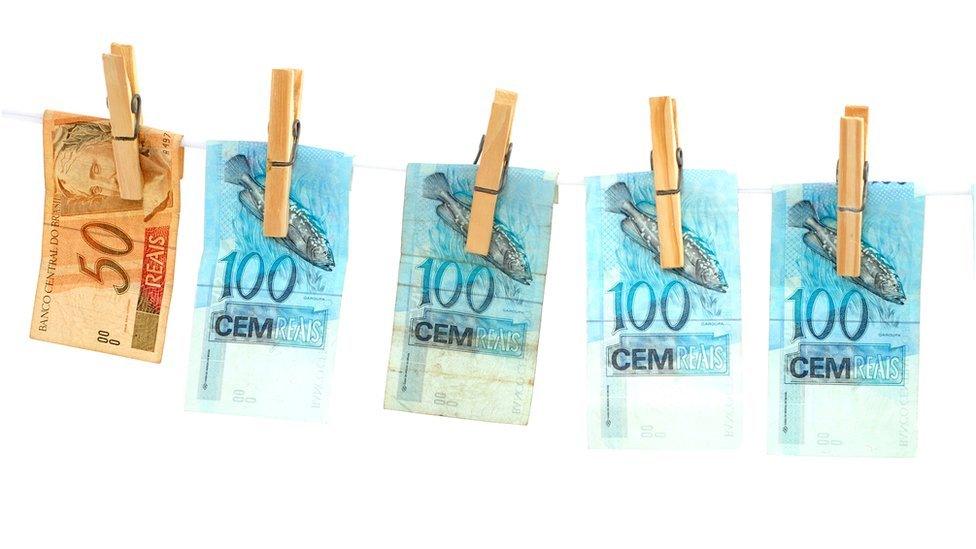Brazil corruption: Senate head Renan Calheiros ordered to resign
- Published
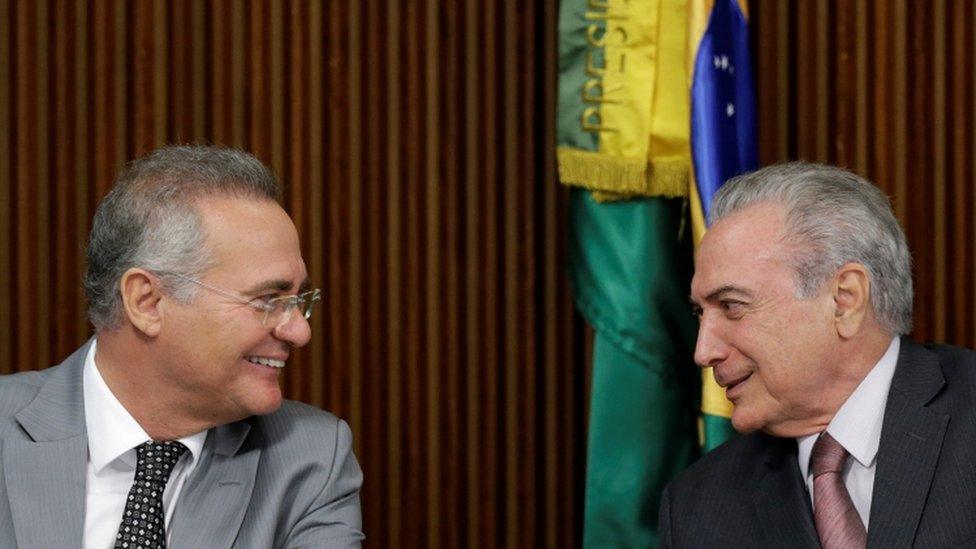
Mr Calheiros (left) is the second in the line of succession to President Temer (right)
A Brazilian Supreme Court judge has ordered one of the country's most senior politicians, Renan Calheiros, to stand down as president of the Senate.
Judge Marco Aurelio Mello issued an injunction saying Mr Calheiros's position was untenable after the court ruled last week that he must face trial for alleged embezzlement.
Mr Calheiros has been accused of taking bribes from a construction company.
He is a close allies of centre-right President Michel Temer.
Judge Marco Aurelio Mello approved the injunction requested by the left-wing Rede party arguing that a politician facing criminal charges cannot be in the presidential line of succession.
As head of the Senate, Mr Calheiros is second in line after the speaker of the Chamber of Deputies, Rodrigo Maia.
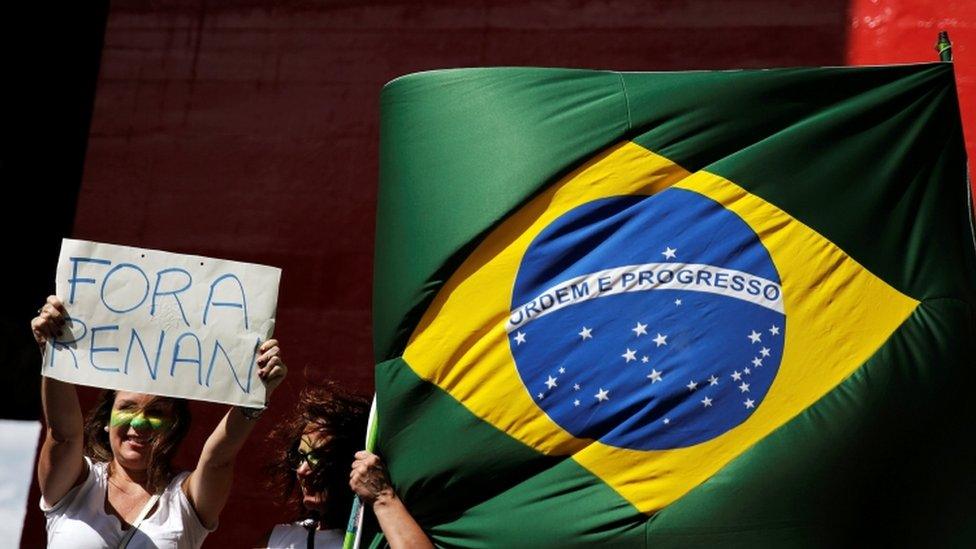
"Out Renan," reads a sign held at an anti-corruption protest held in Sao Paulo on Sunday
Brazil does not currently have a vice-president, as Mr Temer, who occupied the post, replaced Dilma Rousseff as president earlier this year.
She was dismissed after an impeachment trial.
Judge Mello's decision is valid with immediate effect, but it can still be overturned by a majority of Supreme Court judges.
Extramarital affair
The case against Mr Calheiros dates back to 2007.
He was forced to resign as senate leader at the time, but was re-elected six years later. He denies wrongdoing.
Mr Calheiros is accused of agreeing with a construction company to pay maintenance for a daughter he had in an extramarital affair with a journalist.
The company allegedly billed the Senate for the payments.
Mr Calheiros, 61, is also being investigated separately in connection with a big kickback scheme at the state-owned oil company, Petrobras.
Dozens of politicians, civil servants and businessmen have been detained since the investigation, known as Operation Car Wash, began in 2014.
- Published2 December 2016
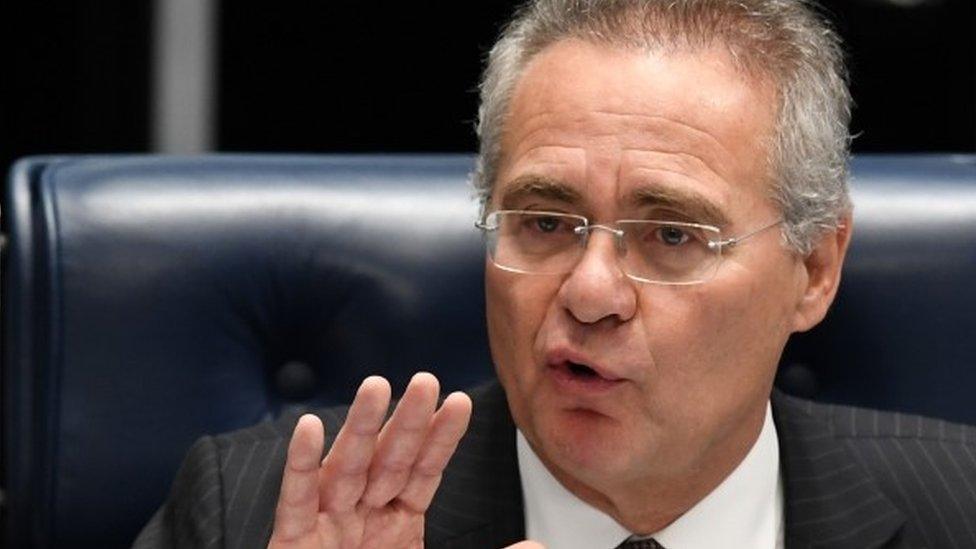
- Published4 December 2016
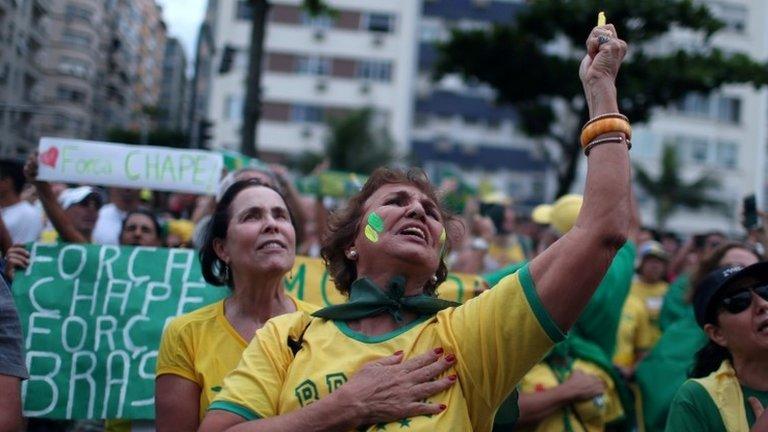
- Published28 November 2016
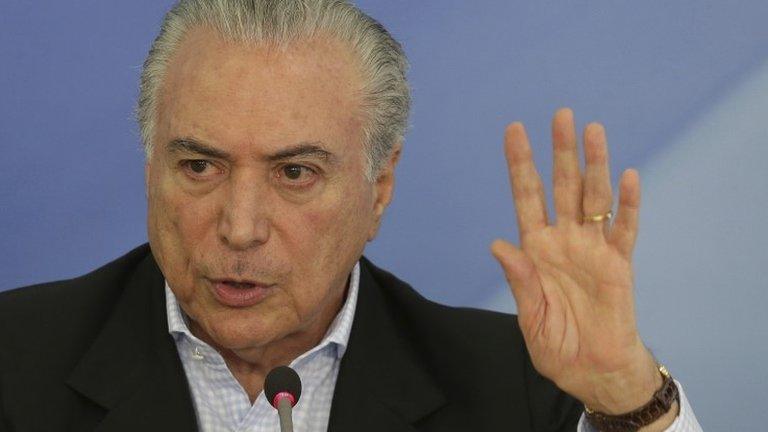
- Published25 November 2016
